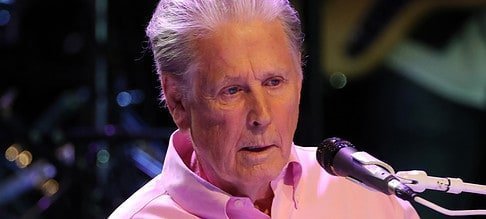South Australia’s growing defence sector is expected to create thousands more jobs in the coming decades as work continues on ongoing maritime projects and the AUKUS program delivers the next generation of nuclear submarines to Australia’s Defence Force.
More than 14,000 workers are currently employed within the sector, with another 10,000 jobs estimated to be added to the defence industry pipeline over the next 20 years, as well as thousands more in supply chain industries.
Opportunities today and into the future will be available in project control, project management, integrated logistics support, electronics, hardware, cyber security, procurement, supply chain, commercial and software and systems engineering, as well as trades such as boilermakers, electronic maintenance, mechanical structures and fabrication.
BAE Systems, Australia’s most versatile defence and security company which employs 5700 employees across more than 20 sites in Australia, is looking to secure approximately 6400 new employees over the next five years.
“We’ve had a very high tempo from a recruitment perspective over the past couple of years,” chief people officer Angela Wiggins says. “We’ve had more than 1000 hires per year in both 2021 and 2022. And we’re on track to double that by the end of this year.
“A lot of it is going into the Hunter-class frigate program which will on board in excess of 600 employees this year, and will create and sustain around 5000 jobs across BAE Systems Australia and the wider defence supply chain over the life of the program.”
Career longevity is also a highlight of BAE’s recruitment drive. “We’re 72 years old so we have a proud history within Australia,” Wiggins says. “With more than 200 programs across the maritime, aerospace, land and cyber domains, people have many opportunities to develop and achieve their career aspirations.”
Those opportunities exist for South Australians of all ages and abilities. “We’re doing a lot of work in relation to early careers and a lot of focus on apprenticeships,” Wiggins says. “We currently have 25 Adelaide-based apprenticeships up for grabs, with applications closing on October 19. We also support and promote people joining us towards the end of their careers.”
Electrical apprenticeship lighting up future in submarines
Paige Rowlands’ interest in electrical work has taken her from her home city of Whyalla to employment with Australia’s submarine company, ASC
Rowlands is in the second year of a four-year electrician apprenticeship with ASC Pty Ltd, a global leader in the defence industry for more than 35 years which employs more than 1900 people across SA and WA. The 19-year-old completed a trades-based program in Year 11 which included components on automotive, construction and electrical engineering, before joining ASC in early 2022.
Today, her work involves maintaining the electrical components housed within the Collins-class submarines, ensuring the multi-billion-dollar boats are safe and operational for use by the Royal Australian Navy. “I was attracted to ASC because it stood out the most as being something unique, rewarding and interesting,” she says. “Working on the submarines gives me the chance to do something more than just lighting up a house or working at the mines.”
Rowlands’ apprenticeship takes her through every electrical aspect of the submarines, ensuring that, at the end of the four years, she will be highly skilled in a wide range of areas. “In electrical we have six crews – it’s split up into different parts,” she says. “As an apprentice, I’m able to move through the crews and get experience of all the different types of submarine systems.
“I’ve enjoyed all of them – they all have their different pros and cons. When I finish my apprenticeship, I could specialise in a certain system if I want to.”
For Rowlands, the daily hands-on duties are a highlight of her role. “I enjoy being able to learn all the different systems – the operation of the boat, why we do the things we do. Every day is something new but it’s always something hands-on, something challenging and it’s really enjoyable.”
Critical thinking skills are also important. “Thinking on the spot and being able to challenge yourself is definitely a skill you need,” she says.
Although just halfway through her apprenticeship, Rowlands already has her sights firmly set on a future career with ASC. “I would like to continue working on the submarines – it’s really interesting and I enjoy being able to provide for the Navy and the nation,” she says. “Everyone I work with is lovely as well. This is definitely a career I can make a life out of.”
Hands-on learning opens doors to employment
Education pathways to jobs in the defence sector are available to students as early as Year 11 to help them explore the diversity of roles on offer and gain valuable skills and experience.
Under the vocational education and training (VET) program, students can prepare for a career in a number of sectors while completing their South Australian Certificate of Education (SACE). With industry input, certificate II courses such as metals and engineering and electrotechnology provide hands-on training and valuable access to experienced trainers.
“Students learn vocational literacy – the words and terminology used in the trades – but they also learn hands-on skills and get a taster of what that trade is going to be like for them into the future,” says Jayne Shortt, apprenticeships and pathways mentor at St Patrick’s Technical College. “Industry has developed programs with skills and knowledge that they know students are going to take with them into shipbuilding and defence.
“The good thing about a certificate II is it’s taught by a qualified tradesperson who has years of experience in trade.”
Trade pathways and work experience can lead to four-year apprenticeships with global businesses such as BAE Systems and ASC. “BAE Systems, which is the contractor for the Hunter Class Frigate and the SSN-AUKUS submarine in South Australia, has a work experience program,” Shortt says. “That immersive experience is valuable. Most students come away saying, ‘Wow, I can feel I’m involved in something big and exciting here’. It’s amazing to have that opportunity.”
For young people looking to pave a career in the defence industry, gaining a certificate II in a relevant discipline can be a vital addition to their resume. “Businesses like it when students have a certificate II as it shows they’ve completed study in that field,” Shortt says. “That puts students in good stead.”
Ship shape for life at sea
With a career spanning almost three decades, Commander Jennifer Graham is testament to the opportunities a career with the Royal Australian Navy can provide.
The commander – who is also mother to two children – joined the Navy in 1995 and is now Commanding Officer of a naval ship, focused on operational planning. “It’s a pinnacle point in my career,” she says. “I have been given plenty of opportunities and variety which I love about the Navy.”
With more than 55 employment roles, from hi-tech to hospitality, the Navy provides career opportunities to suit everyone’s skills and interests.
“Everything we do comes with excellent training,” Commander Graham says. “I’ve never done a job that the organisation hasn’t trained and prepared me to do.”
Able Seaman Tyrone joined the Navy almost four years ago after completing an apprenticeship as a fitter machinist. He now performs maintenance in the ship’s engine room but welcomes new opportunities to expand his horizons.
“I enjoy the diversity – every day is different,” he says. “It’s not always going to be down in the engine space – sometimes I get to see refuelling of helicopters while they’re mid-flight.
“In just my role alone there’s a pathway to become a specified maintainer for gas turbines or propulsion diesel engines, so there are opportunities for me to progress and diversify.”
Travel is another attraction Able Seaman Tyrone has already travelled to Japan, Vietnam, Singapore and South Korea while Commander Graham has visited much of the north and south-east Asian region. “People join the Navy because they are seeking adventure and I have certainly achieved that throughout my career,” she says. “It is incredibly exciting and it really opens your eyes up to the world.”















